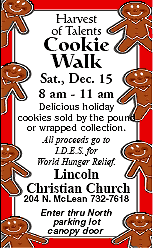 Packages crowd the conveyor belt that snakes around the warehouse. Air cargo containers loom like massive steel igloos at the start of the belt, as couriers stretch and chat before the belt starts moving and streams boxes filled with everything from Christmas presents to medical supplies. The packages are scanned, sorted and directed onto separate belts according to their destination.
Packages crowd the conveyor belt that snakes around the warehouse. Air cargo containers loom like massive steel igloos at the start of the belt, as couriers stretch and chat before the belt starts moving and streams boxes filled with everything from Christmas presents to medical supplies. The packages are scanned, sorted and directed onto separate belts according to their destination.
The drivers line up by their trucks when the packages arrive at their point on the belt. Randazzo arranges his cargo according to destination on the route he knows by heart.
FedEx expects Monday to be the busiest day of the year. Excluding a partnership with the U.S. Postal Service, it expects to haul 10.4 million packages through express and ground service on that day, the last chance to ship via FedEx Ground for Christmas delivery. The prediction represents a 6 percent increase over the 9.8 million shipped on last year's busiest day.

Analysts suggest major parcel carriers overall should expect the usual holiday rush, although revenue will be likely be muddled by the effects of a weak U.S. economy and changing consumer trends.
Jon Langenfeld, an analyst with investment firm R.W. Baird, said the overall freight market is being dragged down by weakness in the housing and automotive markets, and lower consumer spending. Higher diesel prices are also hurting parcel carriers this holiday season, although FedEx will be affected more than UPS, he said, because express services make up more of its business.
National Retail Federation spokesman Scott Krugman acknowledged that while the economy and the rise of electronic gift card purchases will put pressure on shipping this year, these factors should be balanced by robust online sales growth.
Randazzo, along with thousands of other drivers across the country, will work the two Saturdays before Christmas to account for the increased holiday haul.
The 19-year veteran began his career with the parcel carrier after leaving the family pizza business, lured by the benefits and steady paycheck that support his wife and three children.
Despite the habitual nature of the job, and the amount of knowledge he's gained over the years, times have changed, Randazzo said.
He now drives one of 95 hybrid trucks in FedEx's fleet, and one of 48 in the New York City area. His truck no longer requires a key
- a wristband with a delicate sensor opens the doors - although the exterior and inner workings still closely resemble the traditional vehicles.

With his truck loaded and organized, Randazzo starts the engine and heads off on his route. While he lives in Staten Island now, the Gravesend neighborhood in Brooklyn was his home for more than twenty years, so he doesn't need a map.
"I know these streets, these people were my neighbors," he said.
He leaps out of his truck and weaves from business to business, reflecting the four espressos he downed before work.
He enters a doctor's office, and is regaled with cheers as if he is a long-lost relative.
"Vitooooo.....!" the receptionist exclaims, as she accepts the package and signs the "Power Pad"
- a computerized account of pickups and deliveries. He responds with a smile and some quick chitchat, but he is out the door in a flash, on to his next destination.